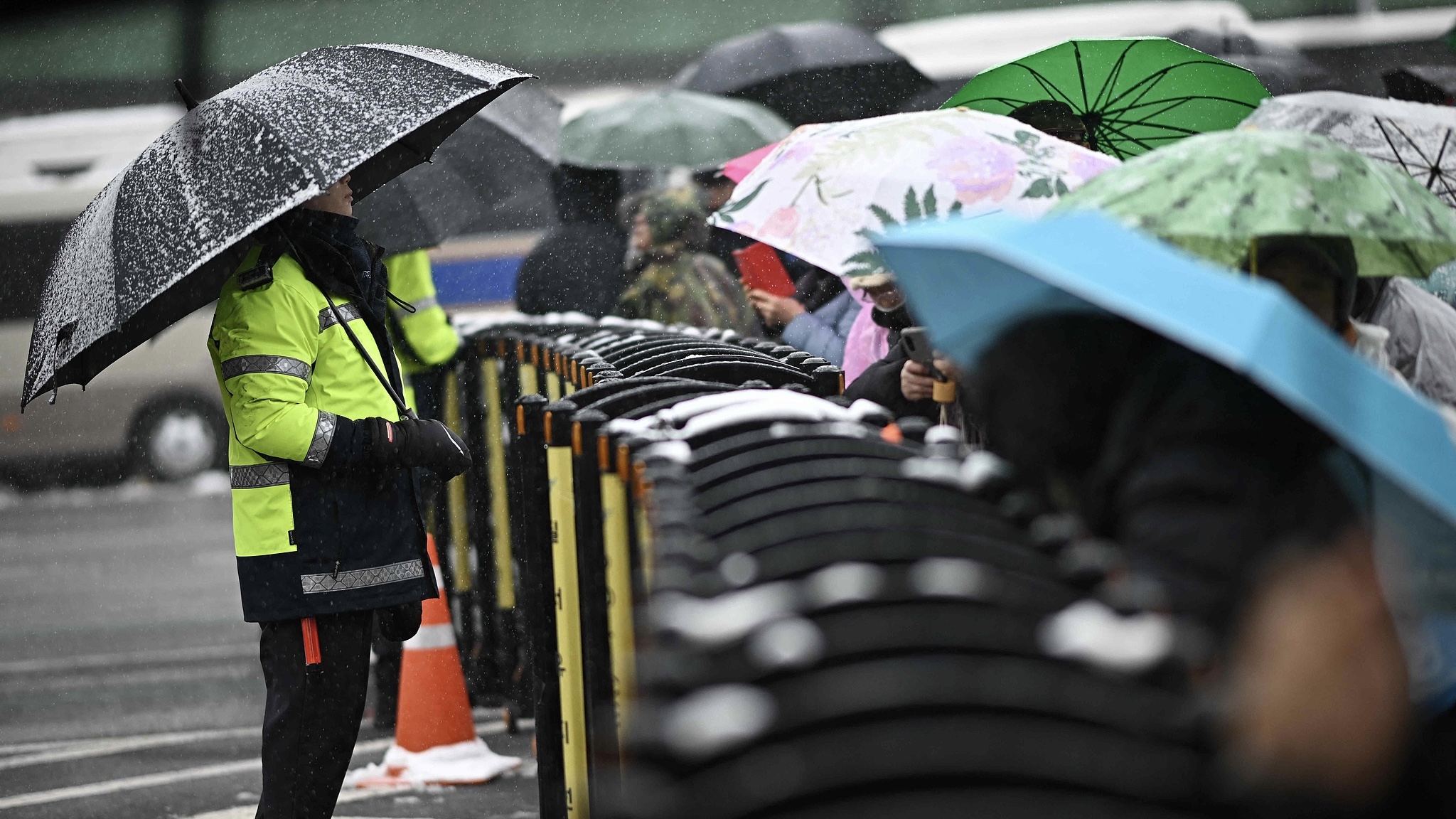By continuing to browse our site you agree to our use of cookies, revised Privacy Policy and Terms of Use. You can change your cookie settings through your browser.
Live: Latest on South Korea's political crisis as court dismisses Yoon's objection to execution of arrest warrant
With an arrest warrant against South Korea's impeached President Yoon Suk-yeol for alleged insurrection expiring at midnight on Monday, multiple groups held demonstrations near his official residence, some urging his immediate arrest while others protested against it. Yoon became the country's first sitting president to face arrest over his botched attempt to declare martial law on December 3, which triggered political chaos engulfing Asia's fourth-largest economy and a key U.S. ally.
The Seoul Western District Court on Sunday rejected a complaint from Yoon's legal team that the arrest warrant was illegal and invalid, Yonhap news agency reported. Calls to the court seeking comment went unanswered. Yoon's lawyers have said the warrant was unconstitutional because the Corruption Investigation Office for High-Ranking Officials (CIO), which leads his criminal investigation, has no authority under South Korean law to investigate any case involving insurrection allegations. CGTN brings you the latest.
CHOOSE YOUR LANGUAGE
- Albanian Shqip
- Arabic العربية
- Belarusian Беларуская
- Bengali বাংলা
- Bulgarian Български
- Cambodian ខ្មែរ
- Croatian Hrvatski
- Czech Český
- English English
- Esperanto Esperanto
- Filipino Filipino
- French Français
- German Deutsch
- Greek Ελληνικά
- Hausa Hausa
- Hebrew עברית
- Hungarian Magyar
- Hindi हिन्दी
- Indonesian Bahasa Indonesia
- Italian Italiano
- Japanese 日本語
- Korean 한국어
- Lao ລາວ
- Malay Bahasa Melayu
- Mongolian Монгол
- Myanmar မြန်မာဘာသာ
- Nepali नेपाली
- Persian فارسی
- Polish Polski
- Portuguese Português
- Pushtu پښتو
- Romanian Română
- Russian Русский
- Serbian Српски
- Sinhalese සිංහල
- Spanish Español
- Swahili Kiswahili
- Tamil தமிழ்
- Thai ไทย
- Turkish Türkçe
- Ukrainian Українська
- Urdu اردو
- Vietnamese Tiếng Việt
CHOOSE YOUR LANGUAGE
- Albanian Shqip
- Arabic العربية
- Belarusian Беларуская
- Bengali বাংলা
- Bulgarian Български
- Cambodian ខ្មែរ
- Croatian Hrvatski
- Czech Český
- English English
- Esperanto Esperanto
- Filipino Filipino
- French Français
- German Deutsch
- Greek Ελληνικά
- Hausa Hausa
- Hebrew עברית
- Hungarian Magyar
- Hindi हिन्दी
- Indonesian Bahasa Indonesia
- Italian Italiano
- Japanese 日本語
- Korean 한국어
- Lao ລາວ
- Malay Bahasa Melayu
- Mongolian Монгол
- Myanmar မြန်မာဘာသာ
- Nepali नेपाली
- Persian فارسی
- Polish Polski
- Portuguese Português
- Pushtu پښتو
- Romanian Română
- Russian Русский
- Serbian Српски
- Sinhalese සිංහල
- Spanish Español
- Swahili Kiswahili
- Tamil தமிழ்
- Thai ไทย
- Turkish Türkçe
- Ukrainian Українська
- Urdu اردو
- Vietnamese Tiếng Việt
互联网新闻信息许可证10120180008
Disinformation report hotline: 010-85061466



With an arrest warrant against South Korea's impeached President Yoon Suk-yeol for alleged insurrection expiring at midnight on Monday, multiple groups held demonstrations near his official residence, some urging his immediate arrest while others protested against it. Yoon became the country's first sitting president to face arrest over his botched attempt to declare martial law on December 3, which triggered political chaos engulfing Asia's fourth-largest economy and a key U.S. ally.
The Seoul Western District Court on Sunday rejected a complaint from Yoon's legal team that the arrest warrant was illegal and invalid, Yonhap news agency reported. Calls to the court seeking comment went unanswered. Yoon's lawyers have said the warrant was unconstitutional because the Corruption Investigation Office for High-Ranking Officials (CIO), which leads his criminal investigation, has no authority under South Korean law to investigate any case involving insurrection allegations. CGTN brings you the latest.